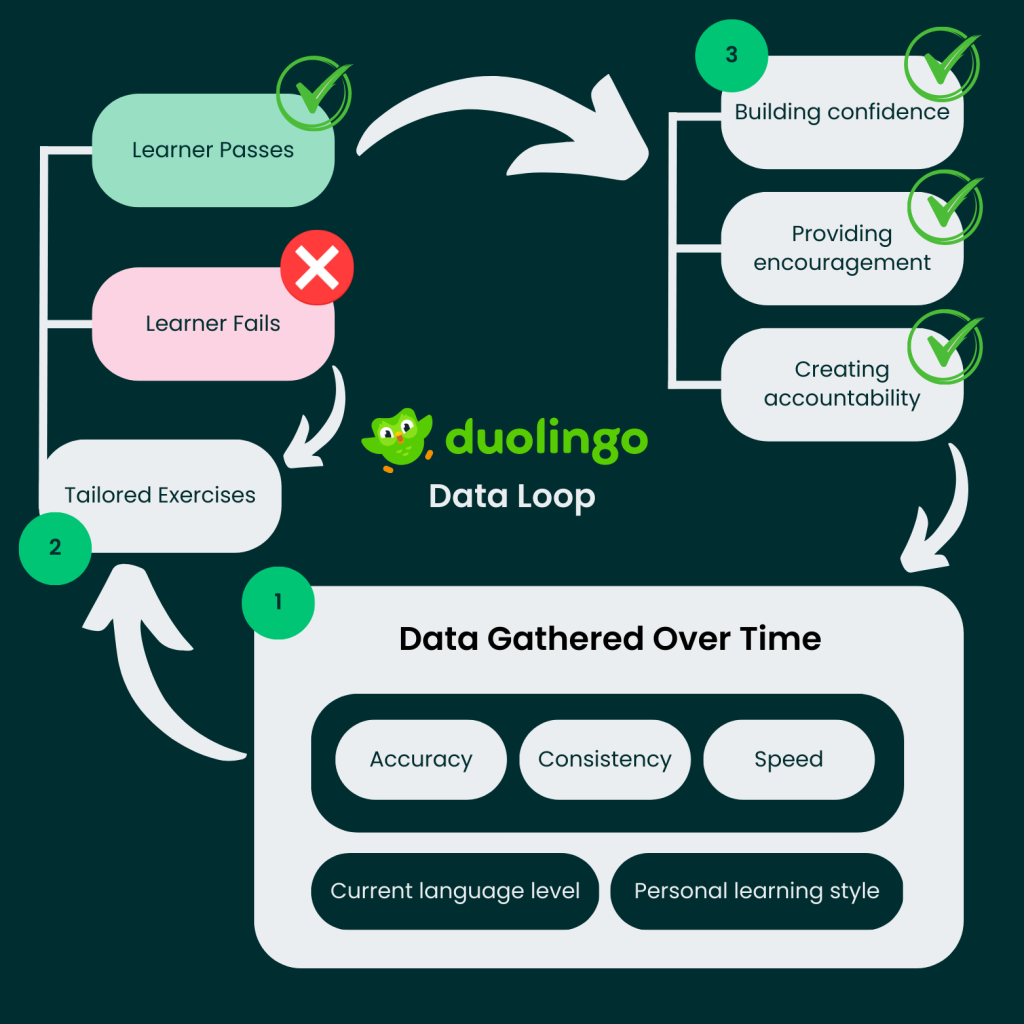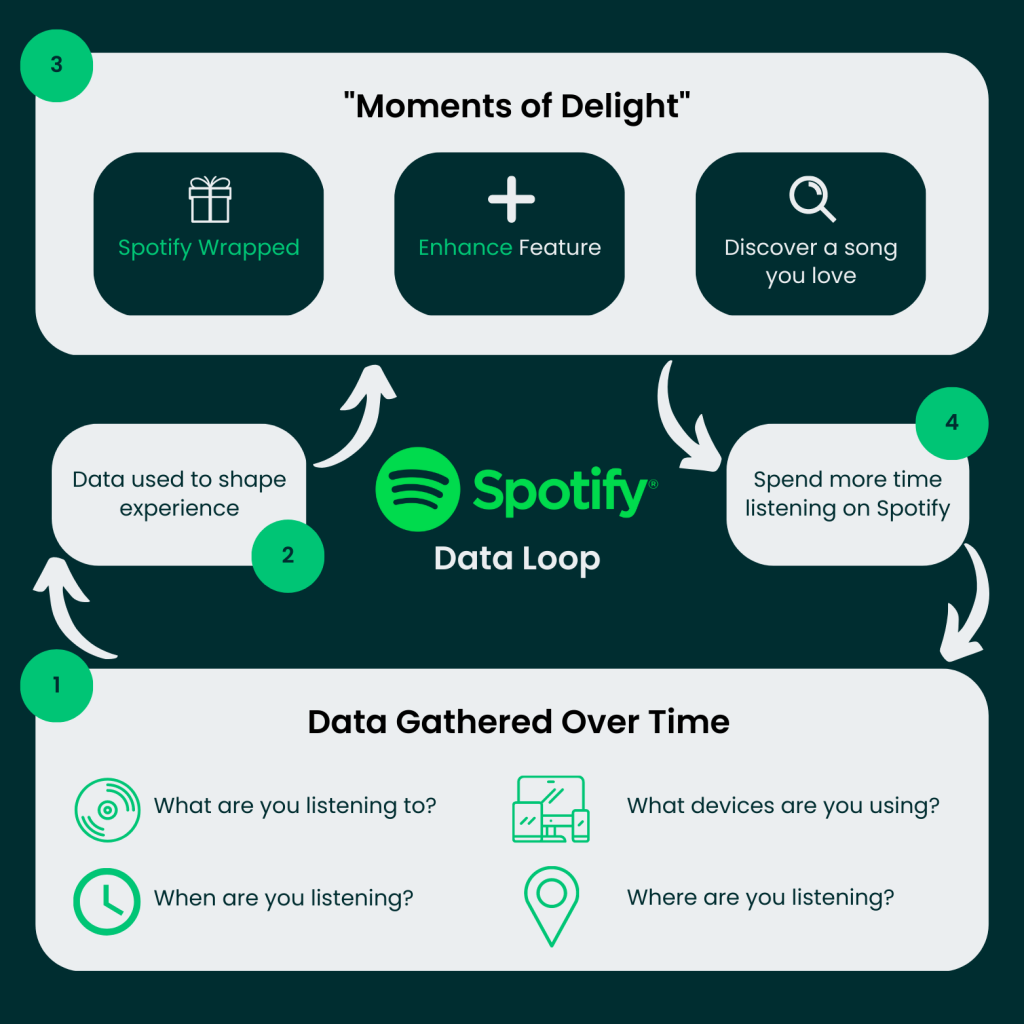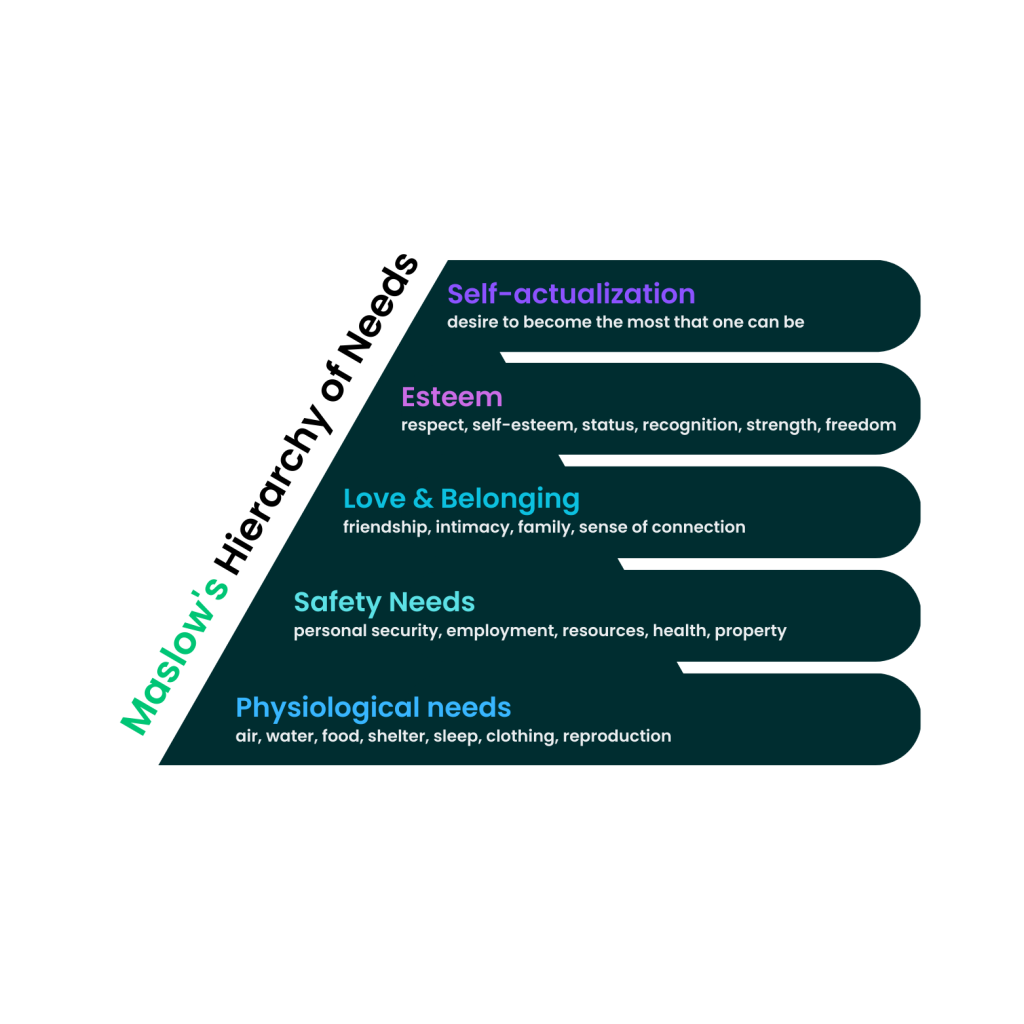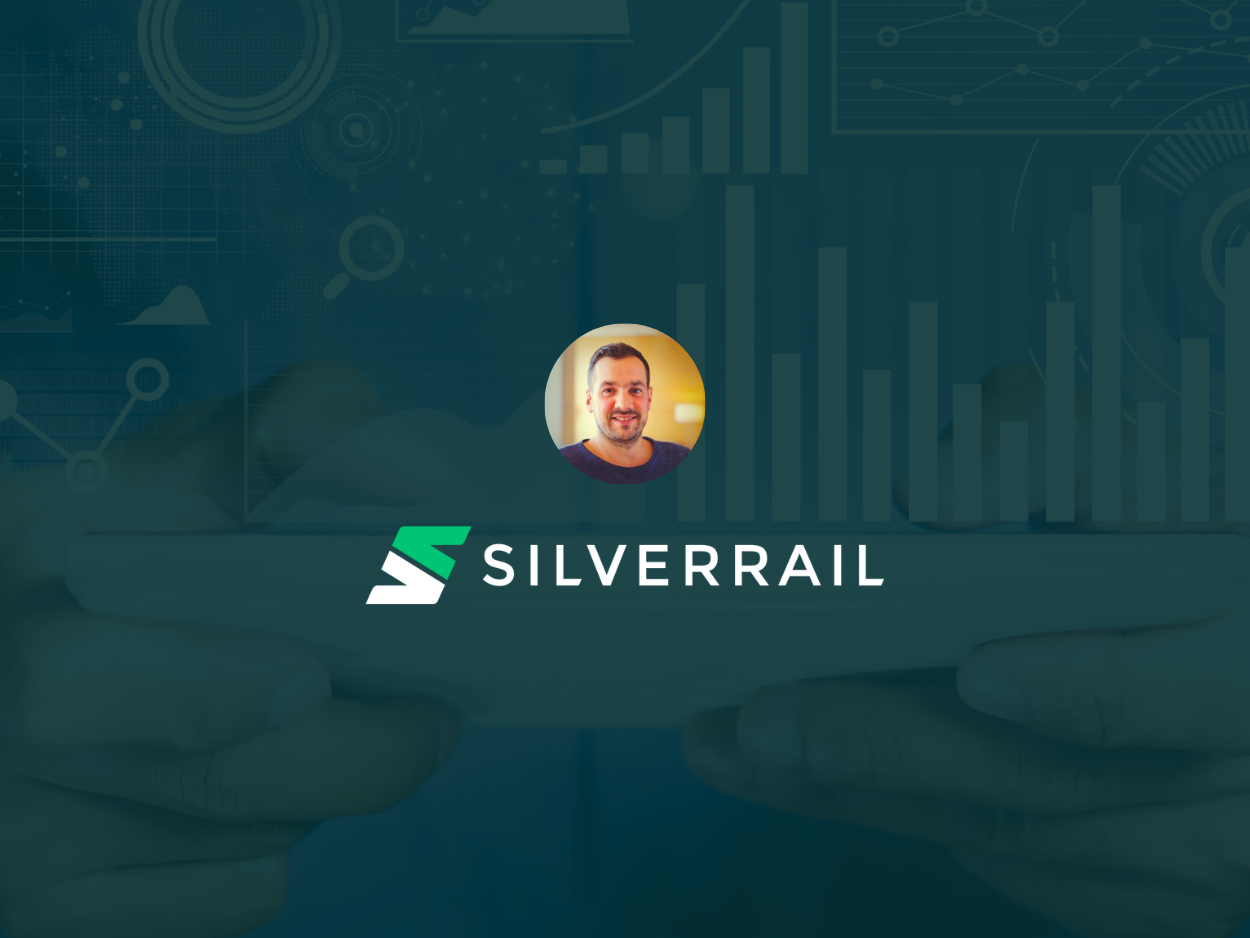The Personal Touch: How Data Drives Companionship Tech & Why It Matters
14/03/2023
Written by Mark Rowland
Are you in a one-sided relationship? With the technology in your life, I mean. Most likely.
Data-driven technology is supposed to make our lives better, faster, and simpler. Yet too often, the technology we use – be it an app or a website – falls short of its potential to truly serve us. Data is used as a means to an impersonal, sales-oriented end – designed to meet the needs of the business, rather than the needs of the user. But, of course, not every company is like this. There are some brilliant examples of businesses (e.g. Duolingo and Spotify) that, through their sensitive use of data, have become pioneers in what I like to call companionship tech. That means technology that goes beyond being merely a functional tool, to something resembling a friend or companion – someone you can rely on, with your interests at heart.
In this article, I’m going to explain how data loops – using data to improve the relevance of the customer’s experience in real-time – can transform not just the customer’s experience, but also enable technology to better meet our psychological needs. I’ll explore why the need for products and software that are personalised around the user is only increasing, and what we can learn from a big green owl.
Conversion vs. Conversation
Before we cast our minds to the future, let’s start by looking at the landscape of the technology we use today. Take retail as an example. Data is now a common currency for every Internet site, yet so little of it is actually used in a way that really serves the customer. Name pretty much any retail website today, and you’ll probably agree that they all just feel the same. In my view, this is because the majority of data is used for reporting or for A/B testing, both of which are static point-in-time ways to measure and improve things for the business. And most of the time, the incentive for A/B testing is not for the customer. It’s for conversion, to make potential customers buy more stuff. But what gets overlooked through this approach is the 90% of customers who don’t buy, or who aren’t ready to buy. This is a huge missed opportunity. What are you doing for these customers? How are you improving their experience? How are you helping them find what they need, or learn what they want to learn, or whatever it is you’re trying to achieve for them so that they come back to your site next time? Are you taking steps to listen to what they need – having a conversation – or just pushing the hard sell to try and convert them?
This process of using data to prioritise conversion over conversation has, over time, led to sites that feel ubiquitous, and rarely think about servicing the needs of the customer. They end up being nothing more than a rather hysterical sales-focused search tool on top of a catalogue of stuff. It’s like being on a date where the other person doesn’t ask any questions about you and only focuses on themselves. Tedious, and unlikely to lead to a meaningful connection.
Tools vs. Companions
Of course, not all websites feel onerous. Some are a pleasure to use – Netflix, for example. Sometimes it’s just about having great content. But mostly, it’s because they’re using all the data they have at their disposal to tailor your experience on their site to you. On a more granular level, that means recognising that there are subtler stages of progression through your needs. This is where data loops come in.
A data loop means that every interaction improves the relevance of every customer’s experience, and the next. And it’s essential in elevating a product from becoming a tool, to becoming a companion. A tool is an unthinking implement, controlled by you. A companion is a sentient being who is one step ahead. A tool shows you all the black dresses available on a given website. A companion would automatically filter those results to show you the dresses in your size, price range and in a style that will look great on you, based on data from your previous purchase history.
Or, let’s say you’re thinking of buying some fencing for your back garden. Rather than make a purchase straight away, perhaps you want to learn more about what kind of fencing products are available and how they compare. As a business, you want the customer to go on a journey that ultimately ends with them feeling like they can pay you back for having helped them understand all of the things about fencing.
And here’s where I feel there are so many opportunities that most retail sites miss – because they’re just finding out how to discount, how to slash prices, how to market you, how to convert you in that session, rather than realising that if they put little bit more effort into holding your hand and being relevant to you, you’re much more likely to make a purchase or at least, feel that this is a website you can trust. In this way, sensitive, sophisticated data use also builds brand credibility. We feel ‘seen’, and understood.
What We Can Learn From a Big Green Owl
Let’s look at two tech companies that use data loops and companionship-style technology in a brilliant way: Duolingo and Spotify. Language learning, and music consumption, both revolve around very personal user journeys. Learning a language, in particular, is hugely rewarding – after all, it’s unlocking your ability to communicate with other humans. But it is also a difficult journey that requires effort and can take a lifetime to complete. Who wouldn’t want a companion to be alongside you for that experience?
Duolingo is a great example of best-in-class companionship tech in action. It’s a tailored learning experience that uses data based on your current level and your personal learning style – your accuracy, speed, and consistency – to keep you motivated and progressing. But what I love most about Duolingo is that if you fail an activity, it will then give you an exercise that’s in your favourite learning style and a slightly easier task – thereby building your confidence back when you fail.
To me, this is the crux of why their model is so brilliant. It’s using data to meet not just the practical, but also the psychological needs of the user. That’s to say, it fulfils the practical need of new language learners: ‘teach me new vocabulary and grammar’, but also the emotional needs of anyone who is a student. The app uses data loops to recreate the essential components of great teaching: building confidence, creating accountability, and providing encouragement. You can see why this is so much more than just a tool.

Another great example of companionship tech and sophisticated usage of data loops is Spotify. It creates real-time recommendations based on data gathered over time about what you’re listening to, where you are when you’re listening, what device you’re listening on, whether or not you’re listening on headphones or speakers, and uses this information to help evolve your personal taste.
It creates what I’d call ‘moments of delight’ really well – ‘Spotify Wrapped’ or their new ‘Enhance’ feature which drops new songs into your playlists being two prime examples. There’s nothing more satisfying than discovering a new song you love, and I can’t be the only one to have received a compliment about the music I’m playing only to have to admit that I had no part in it: it was all Spotify suggestions.

Here’s where the data relationship with the user becomes more organically reciprocal. Because it’s served you well so far, you feel comfortable giving the app more information. So you heart songs and you build your playlists, and you help it discover what you’re likely to like.
As Jon Suarez-Davis, CMO at data management platform, Krux, explained in an article for The Drum:
“While brands are stuck in an extractive mindset, consumers largely view data-sharing as a negotiated exchange of value. They tend to understand the risks involved, and are unlikely to give their data away for no reason. But when companies earn their trust and offer meaningful value in return, they’ll be more willing to share their data on mutually beneficial terms.”
Meeting Your Needs
But there’s something deeper at work here as to why data loops are so effective. Take a look at the diagram of Maslow’s hierarchy of needs.

One of the reasons why Duolingo’s companion-style approach is so effective is because, through the confidence-building approach, it’s working on the higher-level needs – your esteem – and improving your sense of yourself and your capabilities. I’d argue that Spotify hits the ‘love and belonging’ need – it creates joy and pleasure by enhancing your access to art you enjoy.
In contrast, most tool-oriented technology serves the bottom two needs – shelter and safety. I’m thinking of tools like maps, Uber, food delivery apps, Book-A-Table, productivity apps, fitness, health and sleep apps…the list goes on. Of course, these needs are indeed all interconnected. But I’m a problem-solver, and I like to get to the bottom of why things work. After all, deep understanding is the best foundation for innovation. And to me, this model helps explains why it is that companionship tech works so well. Because by helping you to participate in and get the most out of the things you enjoy and that are rewarding – whether that’s discovering a new band that makes your workout routine more bearable, or finally mastering the German dative tense – technology truly can be life-changing.
The Future of Travel
Let’s come back to where we are now. SilverRail is a travel tech business, and this for me is where the potential for data loops and sophisticated, sensitive technology gets really exciting. As I mentioned above, most travel apps hit those bottom two needs: physiological and safety. But what if a travel app could help meet the esteem, or love and belonging needs too? Imagine an app that was able to meet your practical needs for transportation, through reliable mapping, ticketing and route-planning functionality, but also goes one step further by suggesting ways to enhance your whole travel experience as you go.
I believe the potential for data loops in the rail and travel sector is huge. That’s why I joined SilverRail, after more than 10 years of building software products for pioneering tech companies who wanted to be game-changers in their industry: Facebook, Expedia, ASOS. I’m also an entrepreneur at heart and, having worked intimately with start-ups since the start of my career, nothing gives me more joy than to feel I’m working with a team that’s bringing something fresh to the market. My role now is to help unlock what I believe is the huge untapped potential of companionship tech in the rail and travel sector. We’re already working on several exciting new products that, I believe, have the potential to change not just the way we move, but the way we move sustainably.
Dare to Dream Differently
It’s often said that robots will take over our jobs, or that machine learning robs us of what it means to be human. These anxieties aren’t totally unfounded – just look at the furore surrounding ChatGPT. But sometimes I think we need to remind ourselves that as humans we can continue to demand more from our technology. Rather than fear the ways technology could make our lives difficult, we have to constantly challenge ourselves to imagine the ways it could improve things. (Personally, I’m still holding out for hoverboards)
Taking a big step back here, it’s the task of imagination. We have to constantly work to imagine something better, and at the same time, never take our ear away from the ground of our customers’ ever-evolving needs. It’s become a cliche to say that data is more valuable than oil but it’s certainly an asset we can use in a more sustainable, sophisticated way. I feel data loops represent the very best of what technology could do for us. To answer our questions, before we’ve even had to ask them. To help us move through life better, smarter, and easier. And to be our companion, not our tool.
Watch this space…
Interested in taking your tech career to the next level? We’re always looking for brilliant talent to join our team on our mission to put rail at the heart of the future of travel. View our open roles here.





